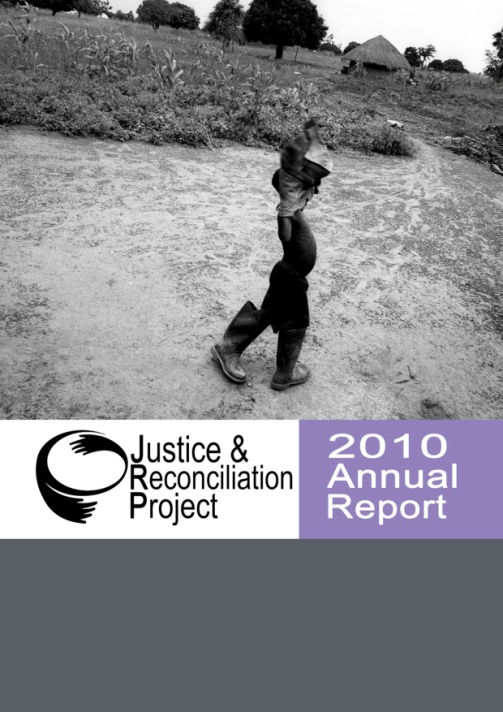
The year 2010 presented a significant step in the future of JRP following the transition from a project created in 2004 to an independent NGO with headquarters in Gulu. JRP has a national mandate to carry out transitional justice activities in Uganda. During the past year, the staff at JRP — together with our student interns, community volunteers, local victim groups and partners — made significant contributions towards the success of planned programs for the year. In particular, working in over twenty local communities in north, northeastern and West Nile regions presented us with unique insights into war-affected communities’ quests for justice, reconciliation and sustainable peace in Uganda.
Our engagements in mobilizing civil society across Acholi, Lango, Teso and West Nile sub-regions for meaningful participation in discourses on justice and reconciliation provided an opportunity for us to re-echo our commitment of ensuring that victims should be at the centre of every stage of developing any transitional justice process in Uganda.
Some key areas of our engagements in the past year include empowering victims to articulate their own positions on transitional justice, for instance the ‘Women’s Gender Justice Statement,’ which was circulated to policy-makers and to a wider audience nationally and internationally. We also mainstreamed gender-related concerns affecting young, formerly abducted mothers in most of our work with civil society, whilst ensuring that our documentation programme amplifies the voices of the young and vulnerable women in northern Uganda. In doing this, we integrated within JRP a unique documentation project, Ododo Wa: Our Stories, where several women were engaged in participatory research and training in leadership and advocacy skills. A testimony by one young woman we worked with sums it all up. She remarked, “…for long we victims of torture, rape and forced marriage have remained silent. Today we have the chance to speak on our own behalf marking an end to a long period of silence. My story has got a healing power and a testimony that many other girls went through the same suffering.”
In addition, our unique action-oriented research interventions led us into publishing important local-level based research reports such as As Long as You Live, You Will Survive on the Omot massacre providing additional insights into ‘what needs to be done’ to ensure that the justice needs of the voiceless are brought to the attention of civil society and policy-makers.
To access the report, click here.
